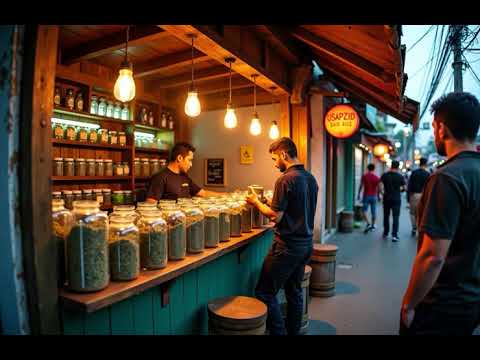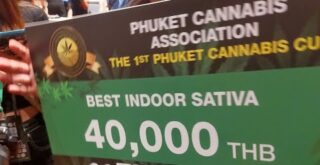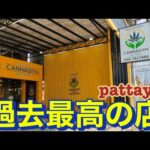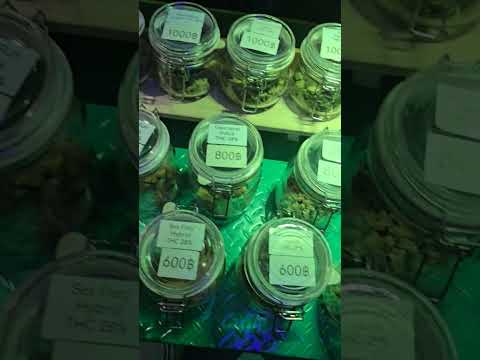The discourse surrounding Thailand’s cannabis future often lacks clarity, especially in international media, which frequently employs broad generalizations, obscuring complex socio-political nuances. A precise understanding requires dissecting these complexities beyond sensationalism.
Crucially, the Ministry of Public Health’s proposed cannabis announcement is merely a draft for legislative consideration, not enacted law. Historical patterns show similar drafts often remain unaddressed or disregarded by parliament. The path from ministerial proposal to Royal Gazette promulgation is protracted and politically charged, involving extensive negotiation. Presuming immediate implementation misunderstands Thai legislative dynamics, a distinction often absent from foreign reports that react as if restrictive frameworks are established.
Historically, cannabis decriminalization was supported by His Majesty King Maha Vajiralongkorn Phra Vajiraklaochaoyuhua, Rama the Tenth, who emphasized its millennium-old social and cultural traditions beyond medical applications. This royal endorsement provided profound legitimacy. However, the current government’s proposed re-regulation, focusing strictly on medical uses with severe recreational restrictions, is perceived as a notable divergence from that royal pronouncement’s spirit. This raises questions about interpreting royal intent and how the executive branch navigates policy related to such a broadly articulated, culturally significant decree. This perceived tension, whether actual or interpretive, is a precarious political endeavor, representing intricate policy negotiation within a framework where royal wishes hold considerable gravitas.
Should this proposal be enacted, ramifications for cultivators, dispensaries, and the marketplace would be immediate and substantial. Small and medium-sized cultivators, having invested significantly, would face increased regulatory burdens, potentially prohibitive licensing fees, and stricter cultivation controls, leading to market consolidation favoring large enterprises and marginalizing independent farmers.
Dispensaries would undergo profound adaptations. The most probable strategy, observed elsewhere, involves proprietors obtaining herbal medicine licenses to issue “prescriptions” for minor ailments like “backache” or “headache” with each transaction. This ingenious circumvention bypasses the need for medical clinic consultations, effectively creating a de facto regulated recreational market under a medical guise, which authorities may find challenging to monitor.
For international visitors, a visa-duration prescription presents a pragmatic economic solution, allowing access without repetitive medical consultations and sustaining vital tourism revenue. Importantly, the medical benefits of cannabis are not negated by these proposals; rather, they channel use predominantly through a formal medical framework, paradoxically facilitating resourceful interpretations.
The marketplace would experience shifts in pricing and accessibility. Stringent regulations limiting supply or escalating operational costs for legal businesses could increase prices for legally obtained cannabis. This is a classic catalyst for black market re-emergence and expansion. Robust demand, especially for higher-THC strains or recreational purposes, would drive consumers to illicit channels if legal access becomes cumbersome or expensive. An existing underground network would flourish, complicating quality control and safety, thus presenting a public health risk that regulations ironically aim to mitigate.
Regarding unforeseen developments, while a military revolution directly instigated by cannabis policy is an overstatement, it alludes to deeper Thai political historical patterns. Any governmental overreach, insufficient public consultation, or actions perceived as incongruent with national sentiment or royal endorsement can foster political instability. If the government mismanages this issue alongside other policy shortcomings or eroding public trust, widespread disaffection could arise, historically preceding periods of upheaval. The cannabis issue thus becomes a litmus test for governmental legitimacy and efficacy, challenging the political system’s resilience.
In conclusion, international English-language news outlets have sensationalized a dynamic, uncertain situation. The document is a proposal, not definitive law. Thailand’s approach will likely involve strategic interpretations and adaptations, allowing the cannabis industry to continue under a stricter, medically oriented facade. The fundamental challenge is balancing public health, economic realities, and the complex political navigation of interpreting broad royal pronouncements. Cannabis’s trajectory in Thailand remains fluid, shaped by legislative deliberations, market adaptations, and political undercurrents. Prudent observation beyond headlines is essential for comprehensive understanding



















コメントを書く